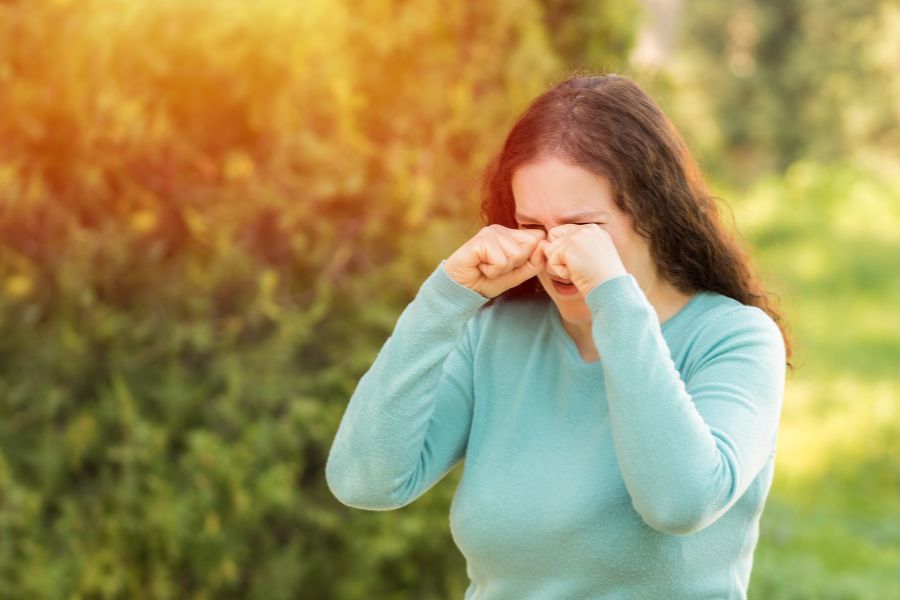How Allergies Affect Your Eyes

What Causes Allergies?
Allergies occur when an allergen – like pollen, dust mites, or pet dander – gets trapped in the body’s mucous membranes. When this happens, the body releases certain chemicals like histamines as a defense mechanism against these foreign particles and as a result, causes many of the common allergy symptoms including those related to your eyes.
When you are exposed to allergens such as pollen, dust, or pet dander, your immune system may overreact, triggering an allergic reaction. This reaction can cause inflammation in your eyes, leading to symptoms such as redness, itching, and watering. Allergies can be a nuisance to deal with, especially when they affect your eyes. Itchy, red, and watery eyes can make it difficult to go about your day-to-day activities.
Spring Is Here & So Are Allergies
If you are experiencing any of these symptoms related to allergies: dry eye syndrome (DED), redness, itching, burning, tearing, or swollen eyes, then you may have an eye allergy. When left untreated, these symptoms can affect your quality of life and even lead to other more serious conditions like conjunctivitis. Allergic conjunctivitis is a common condition that affects many people, especially during the spring and fall seasons. It occurs when the conjunctiva, the clear tissue that covers the white part of the eye, becomes inflamed due to an allergic reaction.
Find Relief From Your Allergy-Related Eye Symptoms
At John’s Creek Eye Care, we understand how frustrating it can be to deal with allergies affecting your eyes. Our experienced eye doctors can help you manage your allergy symptoms and provide you with effective treatments to alleviate your discomfort. Our team of experienced optometrists is here to help relieve your allergy-related eye discomfort. We offer a variety of treatments that can help alleviate these symptoms such as antihistamines and decongestants for itchiness; lubricating drops for dryness; warm compresses for redness; and mast cell stabilizers to reduce the release of histamines.
One of the most common treatments for allergic conjunctivitis is eye drops. These drops contain antihistamines and other medications that help to reduce inflammation and relieve itching and redness. Our eye doctors will evaluate your condition and prescribe the appropriate eye drops for your needs.
We may also recommend avoiding allergens as much as possible. This can include avoiding outdoor activities during peak pollen season or using air purifiers to reduce the amount of dust and pet dander in your home. Our team is dedicated to helping you prevent any recurring allergy flare-ups by using products specifically designed to reduce your exposure to common allergens like dust mites and pet dander.
Personalized Treatment Plan
In some cases, oral medications such as antihistamines may be recommended to help manage your allergy symptoms. Our eye doctors will work with you to create a personalized treatment plan that addresses your specific needs and helps to alleviate your discomfort.
At John’s Creek Eye Care, we understand the impact that allergies can have on our eyes. From redness to irritation, itchy and watery eyes, our team is here to help you find relief from your allergy-related eye symptoms. We offer comprehensive eye exams and a wide range of eye care services to meet your needs. If you are experiencing allergy symptoms affecting your eyes, don’t hesitate to contact us today to schedule an appointment.
OPENING HOURS
| Monday-Thursday | 9:00am – 5:00pm |
| Friday | 9:00am – 2:00pm |
| Saturday-Sunday | CLOSED |
